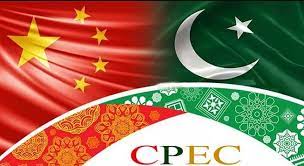ISLAMABAD, July 16: Pakistan has assured the IMF that it would try to receive concessions from the Chinese investors participating in the China-Pakistan Economic Corridor (CPEC) power plants in the shape of either reduction in the profit rates on investment or rescheduling the loan repayments, according to a media report on Saturday.
The assurance to seek concessions from the Chinese investors was given by Pakistani authorities to remove one of the bottlenecks in the finalisation of a staff-level agreement with the International Monetary Fund, government sources told The Express Tribune newspaper.
Pakistan and the IMF reached a preliminary staff-level agreement this week on the combined seventh and eighth reviews for a USD 6 billion loan facility for cash-strapped Pakistan.
The agreement paves the way for the release of the much-awaited USD 1.17 billion loan tranche that had been on hold since earlier this year.
The report said that the issue of reopening the purchase agreements of the power generation plants set up under the multi-billion dollar CPEC is unlikely to die down in the near future.
The previous government led by Imran Khan had also made a similar commitment with another global lender – the World Bank – for a USD 400 million loan in June last year.
They added that Pakistan had informed the global lender that it would try to renegotiate the CPEC deals. However, the chances of that happening are dim because of the political sensitivities involved in the process.
The CPEC is a USD 60 billion flagship project of the Belt and Road Initiative of the Chinese government – a reason that the Chinese leadership has already ruled out the possibility of reopening these deals.
The CPEC connects China’s Xinjiang province with Gwadar port in Balochistan, providing China direct access to the Arabian Sea.
The sources said the government had assured the IMF that it would also try to explore the possibility of seeking an extension in debt repayments against the loans that Chinese investors had obtained from financial institutions in their country for setting up these plants.
One of the irritants in the early conclusion of the staff-level agreement was that the IMF authorities were asking for clear commitments to reduce the power generation cost and the circular debt that had increased by another Rs 850 billion during the last fiscal year.
Neither the finance ministry nor the IMF responded to the requests for comments, the newspaper report said.
The IMF has in the past linked the outstanding energy payments to the Chinese power plants with the concessions that non-CPEC projects had extended to the previous government. Pakistan owes around Rs300 billion to the Chinese independent power producers (IPPs) and the IMF was keeping track of every payment made to them.
So far, 11 Chinese IPPs, set up with an investment of USD 10.2 billion, are operational, having a total generation capacity of 5,320 MW. Last month, the IMF denied that it asked Pakistan to renegotiate CPEC IPPs contracts but said it supported the government’s multipronged strategy to restore the energy sector’s viability.
It had added that the move shared the burden of restoring viability across all stakeholders – the government, producers, and consumers.
The Pakistani authorities fear that the West would not change its policy to keep pressuring it on the issue of CPEC and keep pursuing its agenda through diplomatic channels and international financial institutions. Pakistan entered the IMF programme in 2019, but only half the funds have been disbursed to date as Islamabad has struggled to keep targets on track.
The last disbursement was in February and the next tranche was to follow a review in March, but the government of ousted prime minister Khan introduced costly fuel price caps, which threw fiscal targets and the programme off track. (PTI)
Trending Now
E-Paper


